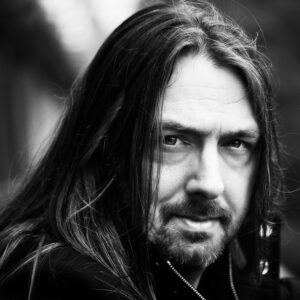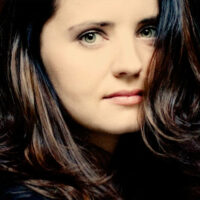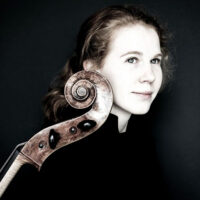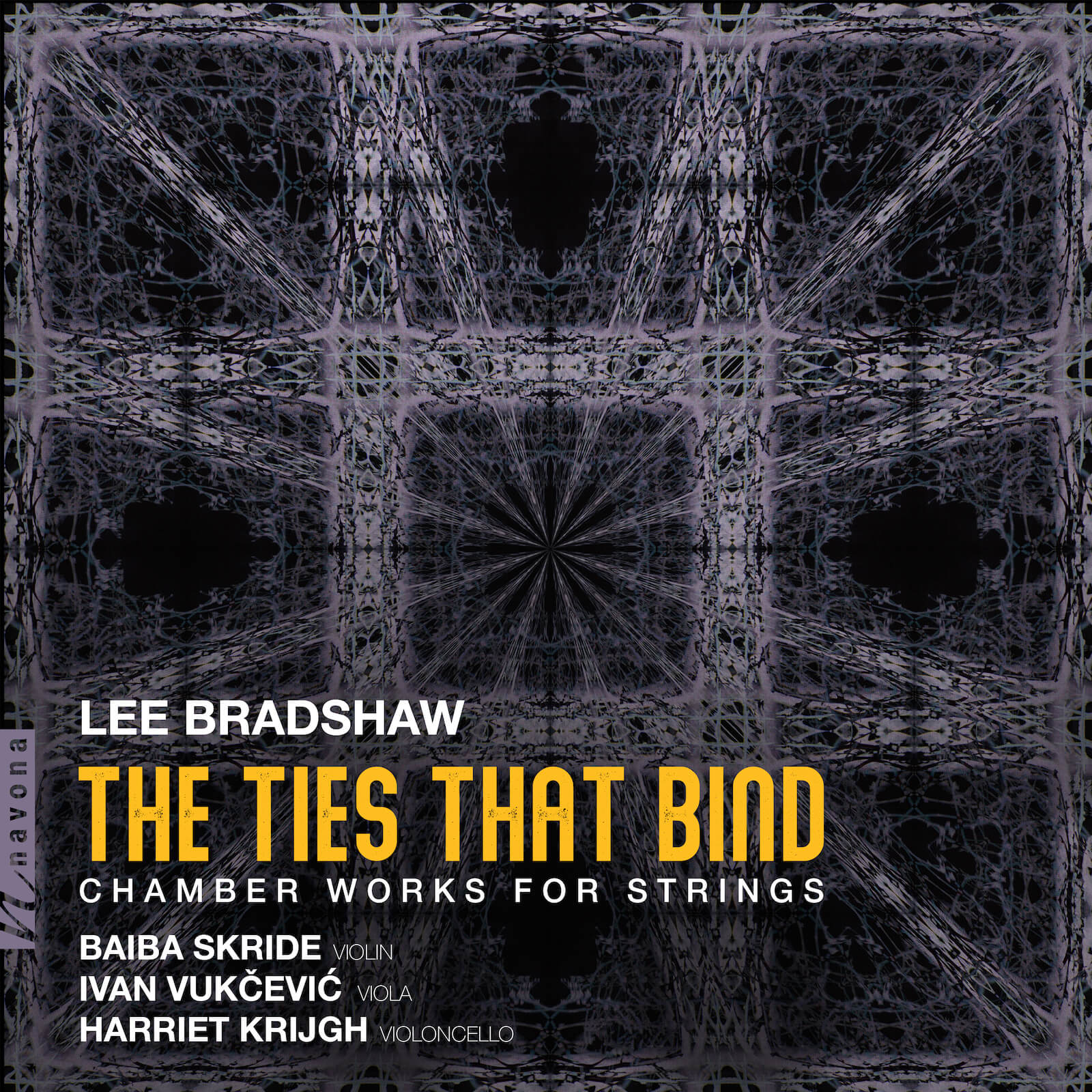The Ties That Bind
Lee Bradshaw composer
Baiba Skride violin
Ivan Vukčević viola
Harriet Krijgh violoncello
Navona Records and Australian composer Lee Bradshaw present THE TIES THAT BIND, a collection of chamber music for strings that reveal an explicit and emotionally-charged truth. Brought to life by Baiba Skide (violin), Ivan Vukčević (viola), and Harriet Krijgh (violoncello), the album features works that redefine the expressive possibilities of contemporary string playing; and in which the performers are compelled to delve deeply into their own artistry. Bradshaw’s sensuous and yet muscular compositional style displays a profound intimacy for his craft, which ultimately renders music of a rare and arresting beauty.
Listen
Stream/Buy
Choose your platform

Experience in Immersive Audio
This album is available in spatial audio on compatible devices.
Stream now on Apple Music, Tidal, and Amazon Music.
Track Listing & Credits
| # | Title | Composer | Performer | |
|---|---|---|---|---|
| 01 | Via Crucis for violin | Lee Bradshaw | Baiba Skride, violin | 4:20 |
| 02 | String Trio “Trigon”: Lento - Piu lento - Morendo | Lee Bradshaw | Baiba Skride, violin; Ivan Vukčević, viola; Harriet Krijgh, violoncello | 6:50 |
| 03 | String Trio “Trigon”: Tempo di valse | Lee Bradshaw | Baiba Skride, violin; Ivan Vukčević, viola; Harriet Krijgh, violoncello | 3:27 |
| 04 | String Trio “Trigon”: Sostenuto - Adagio | Lee Bradshaw | Baiba Skride, violin; Ivan Vukčević, viola; Harriet Krijgh, violoncello | 5:29 |
| 05 | Sarabande for ‘cello | Lee Bradshaw | Harriet Krijgh, violoncello | 4:01 |
| 06 | Concerto for Two for violin and ‘cello: OVERTURA PASSACAGLIA - Grave, sostenuto | Lee Bradshaw | Baiba Skride, violin; Harriet Krijgh, violoncello | 3:33 |
| 07 | Concerto for Two for violin and ‘cello: Moderato assai - Poco alla tedesca - Tempo primo | Lee Bradshaw | Baiba Skride, violin; Harriet Krijgh, violoncello | 8:03 |
| 08 | Concerto for Two for violin and ‘cello: CRYPTOGRAPH - Adagio cantabile | Lee Bradshaw | Baiba Skride, violin; Harriet Krijgh, violoncello | 4:26 |
| 09 | Concerto for Two for violin and ‘cello: FINALE - Vivace - Poco meno | Lee Bradshaw | Baiba Skride, violin; Harriet Krijgh, violoncello | 3:07 |
| 10 | Duo Sonata for viola and ‘cello: DIALOGUE - Moderato | Lee Bradshaw | Ivan Vukčević, viola; Harriet Krijgh, violoncello | 9:33 |
| 11 | Duo Sonata for viola and ‘cello: THEMA e VARIAZIONE - Thema; Tempo di sarabande - Sostenuto - Adagio - Maestoso e poco rubato - CHORALE - Andante con moto | Lee Bradshaw | Ivan Vukčević, viola; Harriet Krijgh, violoncello | 4:58 |
| 12 | Duo Sonata for viola and ‘cello: FINALE | Lee Bradshaw | Ivan Vukčević, viola; Harriet Krijgh, violoncello | 2:08 |
| 13 | Rhapsody for viola solo, after the Concerto | Lee Bradshaw | Ivan Vukčević, viola | 14:25 |
Recorded November 2021 at Emil Berliner Studios in Berlin, Germany
Recording Producer & Engineer Lukas Kowalski
Recorded, edited, and mastered by Emil Berliner Studios
Immersive Audio Engineer Emil Berliner Studios
Executive Producer Lee Bradshaw
Cover Art Michael Labrie
mikelabriephoto.photoshelter.com
Label Executive Producer Bob Lord
A&R Director Brandon MacNeil
A&R Danielle Lewis
VP of Production Jan Košulič
Audio Director Lucas Paquette
VP, Design & Marketing Brett Picknell
Art Director Ryan Harrison
Design Edward A. Fleming
Publicity Patrick Niland, Brett Iannucci
Artist Information

Lee Bradshaw
Lee Bradshaw is a Melbourne-born Australian composer, who’s music reveals an explicit and emotionally-charged truth. His works exhibit a profound intimacy with the craft of composition, compelling the performer to delve deeply into their own artistic and creative reservoirs. His sensuous yet muscular writing redefines the possibilities of expression for the modern musician, whilst the music — rare, uncompromising and arresting in its beauty — offers solace to the listener.

Baiba Skride
Baiba Skride’s natural approach to her music-making has endeared her to some of today’s most important conductors and orchestras worldwide. She is consistently invited for her refreshing interpretations, her sensitivity and her delight in the music.

Ivan Vukčević
Ivan Vukčević is the solo viola of the Orchestra della Svizzera Italiana (Lugano, Switzerland), a position he has held since 2002. He is also a founder and violist of the internationally renowned Quartetto Energie Nove, with which he has recorded critically acclaimed Janáček and Prokofiev quartets for Dynamic. Since 2012, he has been a Professor of Viola at the International Menuhin Music Academy (Gstaad, Switzerland).

Harriet Krijgh
The young Dutch artist Harriet Krijgh is one of today’s most exciting and promising cellists. Her grace and expressiveness touch her audiences as soon as she is on the concert platform.
Notes
In the sea of choices a listener has when it comes to contemporary art music, it is very easy to become extremely open minded and over-accepting towards various philosophies in the "music-making" process.
In the ever-evolving (and devolving) contemporary society, the paradox for an "educated" listener is that strong opinions and beliefs are less and less appreciated and accepted by the post-modern public and art bureaucracy.
Nevertheless, one can still talk about various "schools," directions, groups, etc. when describing a new composition.
And then, throughout the post-renaissance music history, there were those who one cannot "place" anywhere: those who perished way too early, leaving a limited amount of incredible music (Pergolesi, Arriaga), those who flourished and reached their maturity well into their twilight years (Janaček), those ignored, banished by their peers and the establishment (Roslavets), etc.
More than one's teacher(s), the socio-geographical and cultural surroundings and how one reacts to them can shape a truly different mind.
A man born in Melbourne, Australia who grew up listening to rock music as much as Beethoven and Mozart, who develops not only a total technical mastery of the art of music making but a unique voice that sounds nothing like that of his peers, is an anomaly.
Lee Bradshaw's creations are difficult to classify, and even more difficult to explain: what, at a first listen, might sound archaic is totally the opposite upon closer inspection; the high chromaticism that ventures into atonality and then into "nothing" one cannot really find elsewhere; one who hears his music is not interested in anything outside of it. It is abstract in the true sense of the word.
— Ivan Vukčević

